
On March 10, various folk activities were held in Longtan Town, Jiahe County, to celebrate "Er Yue Er", or the Dragon Head Raising Day. People performed dragon dances and held ploughing ceremony to pray for a bumper harvest. Er Yue Er, which falls on the second day of the second month on the Chinese lunar calendar, is regarded by the Chinese people as the day when the "dragon raises its head," which means the spring awakens after winter hibernation. The photo shows villagers of Xiatang Village in Longtan Town performing a dragon dance. (Photo/Huang Chuntao)
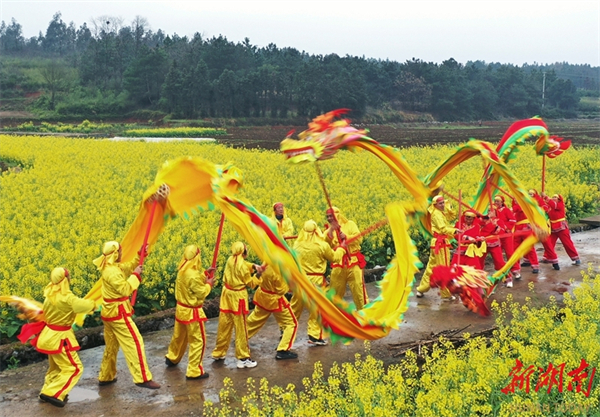
On March 10, various folk activities were held in Longtan Town, Jiahe County, to celebrate "Er Yue Er", or the Dragon Head Raising Day. People performed dragon dances and held ploughing ceremony to pray for a bumper harvest. Er Yue Er, which falls on the second day of the second month on the Chinese lunar calendar, is regarded by the Chinese people as the day when the "dragon raises its head," which means the spring awakens after winter hibernation. The photo shows villagers of Xiatang Village in Longtan Town performing a dragon dance. (Photo/Huang Chuntao)
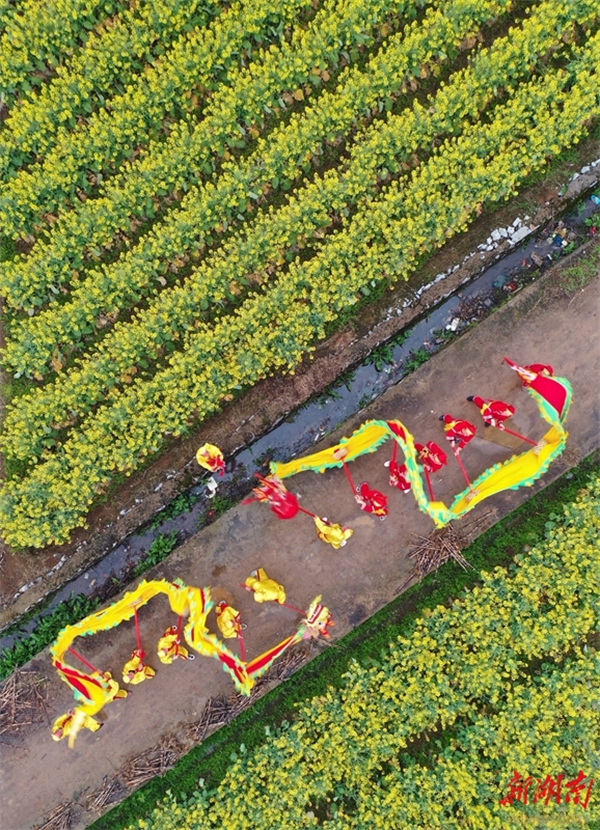
On March 10, various folk activities were held in Longtan Town, Jiahe County, to celebrate "Er Yue Er", or the Dragon Head Raising Day. People performed dragon dances and held ploughing ceremony to pray for a bumper harvest. Er Yue Er, which falls on the second day of the second month on the Chinese lunar calendar, is regarded by the Chinese people as the day when the "dragon raises its head," which means the spring awakens after winter hibernation. The photo shows villagers of Xiatang Village in Longtan Town performing a dragon dance. (Photo/Huang Chuntao)
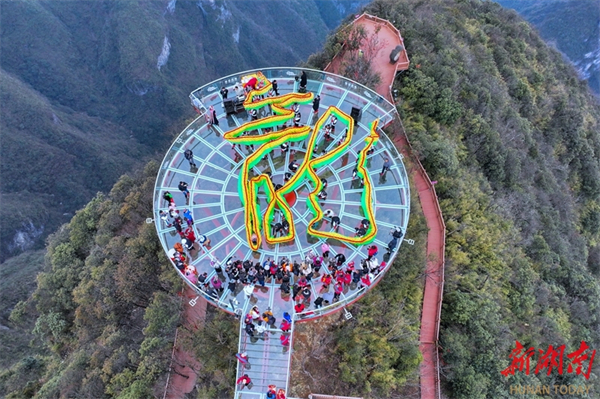
On March 10, various folk activities were held in Qixing Mountain Scenic Area in Zhangjiajie to celebrate "Er Yue Er", or the Dragon Head Raising Day. Er Yue Er, which falls on the second day of the second month on the Chinese lunar calendar, is regarded by the Chinese people as the day when the "dragon raises its head," which means the spring awakens after winter hibernation. The photo shows folk artists performing a dragon dance at the scenic area. (Photo/Xiang Tao)

On March 10, various folk activities were held in Qixing Mountain Scenic Area in Zhangjiajie to celebrate "Er Yue Er", or the Dragon Head Raising Day. Er Yue Er, which falls on the second day of the second month on the Chinese lunar calendar, is regarded by the Chinese people as the day when the "dragon raises its head," which means the spring awakens after winter hibernation. The photo shows folk artists performing a dragon dance at the scenic area. (Photo/Xiang Tao)
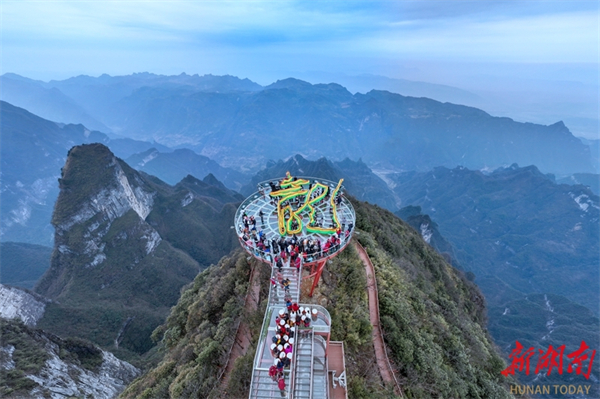
On March 10, various folk activities were held in Qixing Mountain Scenic Area in Zhangjiajie to celebrate "Er Yue Er", or the Dragon Head Raising Day. Er Yue Er, which falls on the second day of the second month on the Chinese lunar calendar, is regarded by the Chinese people as the day when the "dragon raises its head," which means the spring awakens after winter hibernation. The photo shows folk artists performing a dragon dance at the scenic area. (Photo/Xiang Tao)
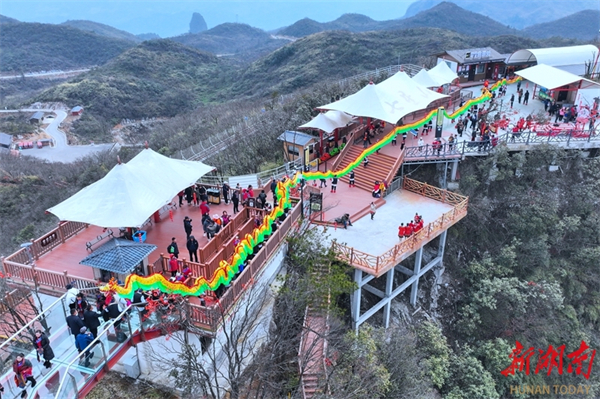
On March 10, various folk activities were held in Qixing Mountain Scenic Area in Zhangjiajie to celebrate "Er Yue Er", or the Dragon Head Raising Day. Er Yue Er, which falls on the second day of the second month on the Chinese lunar calendar, is regarded by the Chinese people as the day when the "dragon raises its head," which means the spring awakens after winter hibernation. The photo shows folk artists performing a dragon dance at the scenic area. (Photo/Xiang Tao)
来源:enghunan.gov
编辑:谭婕倪